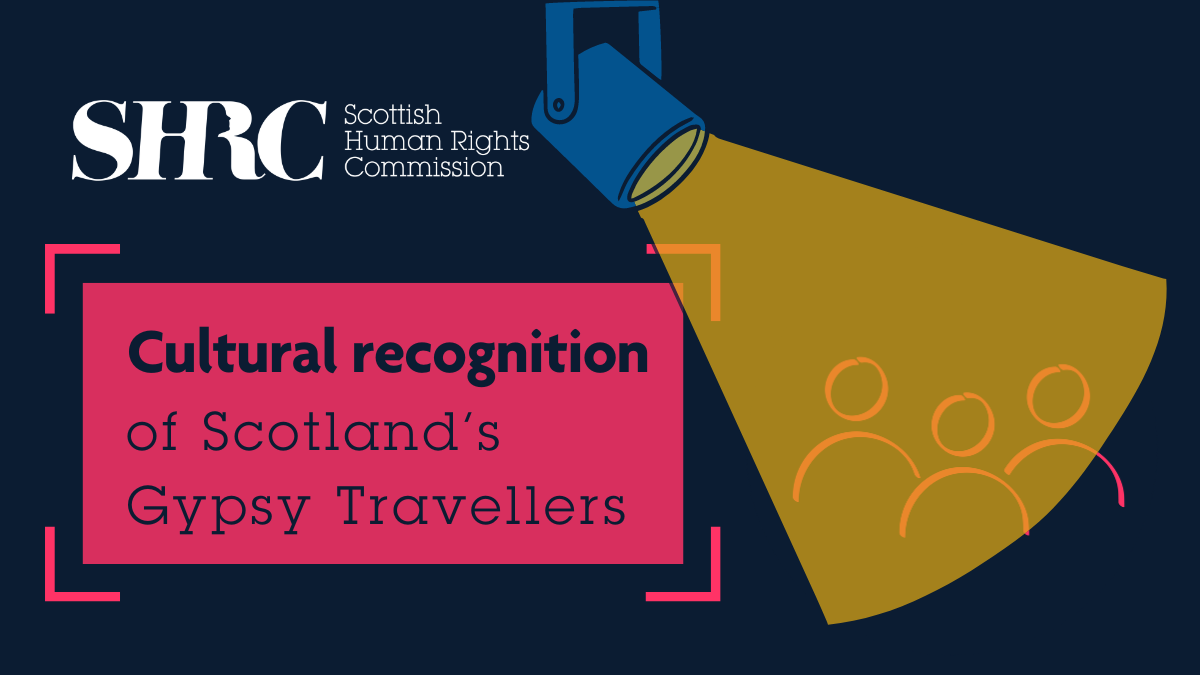Why we are spotlighting this issue
We all have the right to enjoy and contribute to cultural life. However, people don’t always have equal access to this right.
The Scottish Gypsy Traveller Community have told us they were victims of the ‘Tinker Experiment’, where members of the community were forcibly settled into static accommodation sites from the 1940s onwards. This scheme was supported by UK Government and Scottish local authorities.
Members of the community were forced to live in culturally unsuitable accommodation in the form of wooden huts - which lacked proper heating and plumbing until the early 2000s - and made to attend schools where they say they experienced significant discrimination.
After 15 years of campaigning and advocacy by the victims of the experiment an apology was given by the First Minister of Scotland in June 2025.

“Big chill at Bobbin Mill” by Shamus McPhee
Recognising human rights
Several human rights treaties protect the rights of Gypsy Travellers to preserve their culture and seek redress, which means to make things right when they go wrong. This includes the United Nations’ Convention on the Elimination of Racial Discrimination (CERD) and the Council of Europe’s Framework Convention for the Protection of National Minorities (FCNM). The UK Government has ratified both treaties (CERD in 1969 and FCNM in 1998) which means they have agreed to uphold the rights contained within them.
In 2024, the body that monitors implementation of the Convention on the Elimination of All Forms of Racial Discrimination, called the Committee on the Elimination of Racial Discrimination, addressed the concerns of the victims around a lack of progress on an apology. They said:
"The Committee is concerned about reports that the causes and consequences of the forced assimilation of Gypsy/Traveller communities in Scotland have not yet been adequately addressed by the State party, notably the government of Scotland.
The Committee recommends that the State party, including the government of Scotland, adopt all measures necessary to tackle the causes and legacy of forced assimilation faced by Gypsy and Traveller communities and ensure that members of these communities can participate in all initiatives in this regard.”

Human Rights concerns about the ‘Tinker Experiment’ were also raised by the advisory committee on the Framework Convention for the Protection of National Minorities in 2022, who said: “The Advisory Committee considers that truth and reconciliation processes in the context of past assimilation can contribute to building mutual trust in the long run.”
The Scottish Government commissioned research in 2022 to establish the facts surrounding the ‘Tinker Experiment’. This research was published in June 2025, alongside the apology.
Over the course of this work victims of the experiment told us they had been excluded from this research and therefore unable to participate in the redress process.
This project is part of our wider focus on the rights of at risk, specially-protected groups, highlighted as a key priority in our Strategic Plan 2024-28.
What the project will do
The project will examine the denial of the rights to cultural recognition of Scotland’s Gypsy Travellers and the impact on the community, past and present.
To ensure victims can participate, the Commission has undertaken a co-led research project. Working with Rajpot, a voluntary organisation working to give indigenous and cultural communities a voice and an archival researcher, victims will collate evidence to develop an archive documenting the ‘Tinker Experiment’, and including statements of their experiences if they wish to share them.
The Commission will use the evidence to produce and publish a Human Rights Assessment of the ‘Tinker Experiment’ and its ongoing impact and steps to redress for its victims.
Contact us

Further information
If you or someone you know have been affected by the ‘Tinker Experiment’, and you would like to share your experiences, please contact us on hello@scottishhumanrights.com






